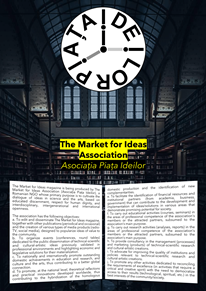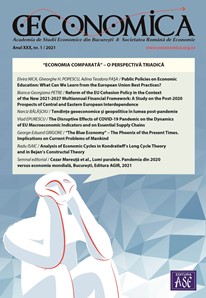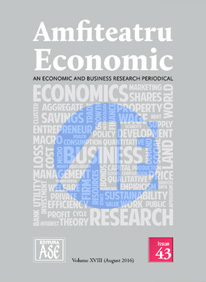
The Future of Economics Is Human
Private actors have long embraced behavioral economics as a way to boost sales and profits yet, until recently, the line of study had not been endowed with a front row seat in the hall of economic policy development.
This year’s recipient of the Sveriges Riksbank Prize in Economic Sciences in Memory of Alfred Nobel (called the Nobel Prize for Economics), Richard H. Thaler, increases the proportion of behavioral economists upon whom the prestigious award has been bestowed to 6%. His work offers a glimpse into a particular type of libertarianism: coined as “libertarian paternalism” by this year’s Nobel Prize recipient and the co-author of his bestselling book “Nudge”, Cass Sunstein, the pair argues for guiding people in their choices under specific conditions. Libertarian paternalism would prevent losses resulting from neglecting to act upon lucrative propositions such as signing up for a savings plan where the employer matches one’s contribution up to a certain percent of one’s income and reasons in favor of providing as default options for policy implementation the best alternative for the individual or society as a whole (such as automatic enrollment in said savings program) in order to assist fallible or inexperienced individuals with key decisions. Thaler tries to match the two seemingly conflicting interests of the individual and the group (to him, choices need not be a zero-sum game) by minimizing the cost of externalities through defaults that are beneficial to one party while interfering minimally with respect to the other (a widespread example is that of favoring opt-out policies rather than opt-in, on the one hand to increase the number of participants and, on the other, to bank on people’s inertia).
Thaler’s argument for libertarian paternalism is that there is rarely no default option offered by public and private organizations, so the one that is indeed proposed might as well be the best one designed for an indifferent, unsophisticated or forgetful individual. His merit is that of bringing into the spotlight a different kind of economic actor: one that does not always act in his own best interest.
Thaler acknowledges that the consumer is far from being rational, and is governed by faults such as failure to act on opportunities, being insufficiently sophisticated to make complex economic decisions and ruled by biases and heuristics: referring to known variables in order to speculate with regard to an unknown piece of information, assuming how likely events are based on the frequency with which said events are portrayed in the media and allowing stereotypes to shape their views. Moreover, the laureate highlights the fact that error-prone humans (regardless of their academic background) tend to overestimate their strengths, while suffering twice as much following a loss, as they would rejoice subsequent to a material gain.
One of the most important ways in which his ideas have been applied is the program started together with Shlomo Benartzi, called Save More Tomorrow. Based on the idea that people procrastinate, the pair argued in favor not only of automatic enrollment into a savings program to help people set aside enough money for retirement, but also for that program to automatically increase the savings rate in tandem with pay raises. By correlating increases in the percentage of income destined for the savings account with higher wages, employees overcome their loss aversion that would arise from cutting their spending in order to save (since their paychecks increased, participants do not perceive the extra money set aside as a loss in immediate spending power) as well as the inertia of maintaining the same rate over an indefinite period. By relegating enrollment to the default option, few people opt-out, as the effort to join is zero, with inertia playing an important role as well.
A keen scholar of behavioral finance, Thaler also pointed out the preference many financial market investors have for irrational diversification. In addition to favoring stocks as more profitable investments, outperforming bonds in any 20-year period on record, the economist noticed a preference for proportional diversification that does not necessarily correspond to one’s degree of risk aversion. Investors tend to divide their money equally between suggested options, without realizing they may be building more aggressive portfolios than they intended. For example, someone who has the option to choose between different funds, may not realize that one fund that fits their risk preference is already diversified, and many opt for other, riskier options in addition to the initial choice. Others do not realize that owning significant amounts of their employer’s stock exposes them to downturns in the market. In this sense, the American Congress limited the percentage of stock one may hold in their employer’s company, as a result of the economist’s work showing that insiders had no better outcomes in the market than outsiders.
Thaler’s work may strike his readers as less technical (Nudge is easily digested, as the authors abstain from including complicated formulae), yet it carries considerable potential and weight in the field of policy development. Too frequently, citizens are forced to sift through complex processes in order to adhere to procedures (the American tax system being Thaler’s go-to example for pointlessly complicated compliance processes). Too frequently, one is insufficiently equipped to gain an understanding of his or her options, while the default may not be in his or her favor.
This is what makes Richard Thaler the man of the hour.








